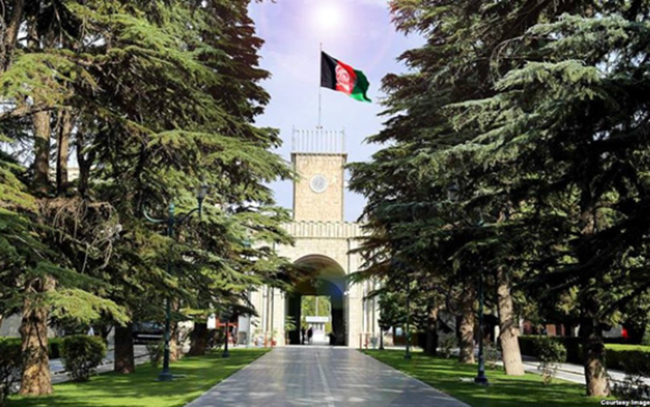Political cleavage emerged between Afghan officials within the government apparatus has filled the air with a sense of anxiety for both state and nation. With the growing discontent, a number of Afghan authorities and political figures have recently formed a coalition under the term of Etilaf-e-Nijat-e- Afghanistan (coalition for Afghanistan’s rescue) and a new political party titled “Mehwar-e-Mardum-e-Afghanistan” (core of Afghan people).
In 2014 election, the National Unity Government (NUG) was formed based on a political agreement between Ashraf Ghani and Dr. Abdullah Abdullah after a protracted serious discussions. Based on this agreement, Ghani became the president and Abdullah the Chief Executive Officer (CEO). Although this agreement was not supported constitutionally in Afghanistan’s presidential-parliamentary system, it was said that a Loya Jirga (Grand National Assembly) would be formed after two years to consolidate Abdullah’s position on the basis of law. The CEO showed great tendency in changing the country’s structure into parliamentary system that would pronounce him as prime minister and extend the realm of his power more than president.
Currently, Afghanistan’s political system is combined of both presidential and parliamentary characteristics. For instance, the president is elected via general election by nation’s votes. However, ministers are selected by parliamentarians’ vote of confidence and they are responsible before the parliament, which represents the nation’s will. MPs are entitled to impeach and even incapacitate ministers in case of not being proved qualified. So, the former reflects presidential characteristic, whereas the latter is derived from parliamentary system. But legally, there is no room for CEO or prime minister and Dr. Abdullah’s dream did not come true after two years acting as CEO based on mutual agreement. Now the point is that the NUG was formed after a long tension and discontent among officials and political parties. This agreement was celebrated by Afghan nation after waiting for months impatiently since the Independent Election Commission (IEC) was not able to declare a final result, which was a strong blow to its reputation.
The political tension within the government apparatus resurfaced every now and then. That is to say, the tension within the government’s body on the one hand, and escalated militancy and economic constraints on the other hand put strong pressure on the NUG. With the Taliban’s deadly attacks and suicide bombings which inflicted heavy casualties upon civilians and emergence of self-proclaimed Islamic State of Iraq and the Levant (ISIL) that stoked sectarian violence prompted the nation to raise their concerns and utter their dissatisfaction. In brief, the mounting insecurity and mass unemployment created a rift between state and nation, too. The exchange of harsh rhetoric among government officials and accusing one another in one way or another widened the nation-state gap and led to a strong mistrust.
With the formation of recent coalitions, the tension among officials hit rock bottom and political conflict has reached its peak. Three prominent officials and former Jihadi leaders namely the First Vice President Gen. Abdul Rashid Dostum, the Second Deputy to CEO Haji Mohammad Mohaqqiq and Balkh provincial governor Ata Mohammad Noor formed the Etilaf-e-Nijat-e- Afghanistan coalition alleging that Afghan President monopolized the power – which was denied by presidential palace.
Few months after being declared as the First Vice President, Dostum voiced against presidential palace claiming that he was sidelined from political decisions. The crux of tension between Dostum and presidential palace emerged when the former Jowzjan provincial governor Ahmad Ishchi filed petition against Dostum claiming that he was jailed and harassed sexually by Dostum and his bodyguards. The issue went viral in national and international media that defamed Dostum seriously. To cut it short, he denied legal justice and took a trip to Turkey. His case is remained unaddressed.
In reaction to recent statements made by Mohaqqiq and Noor against the government, the presidential palace said that those who accuse the state are also members of the government’s body and perhaps they did not fulfill their responsibilities either. They have to discuss their corrective strategy with the state, Ashraf Ghani maintained.
Some political pundits believe that Ghani has not monopolized power but, unlike the Afghan former President Hamid Karzai, he gives no concession to warlords, which might be the main reason behind the current tension.
It is feared that the public will be the main victims in this political tension that may change into a worst-case scenario and do more harm than good. Despite a sense of mistrust between state and nation, the war-weary Afghans deem the opposition parties – the aforementioned coalitions – in conflict with status quo in this critical time as the country is beset by a number of greater challenges. To sum up, the nation is not optimist about the coalitions since such movements were doomed to failure in the past without a palpable result.
Home » Opinion » Political Tension Soars between Afghan Officials
Political Tension Soars between Afghan Officials
| Hujjatullah Zia

